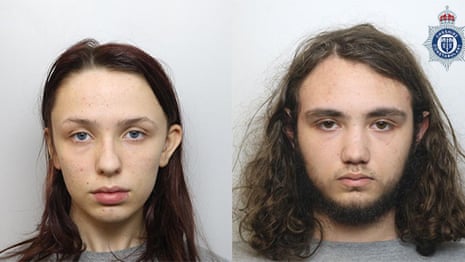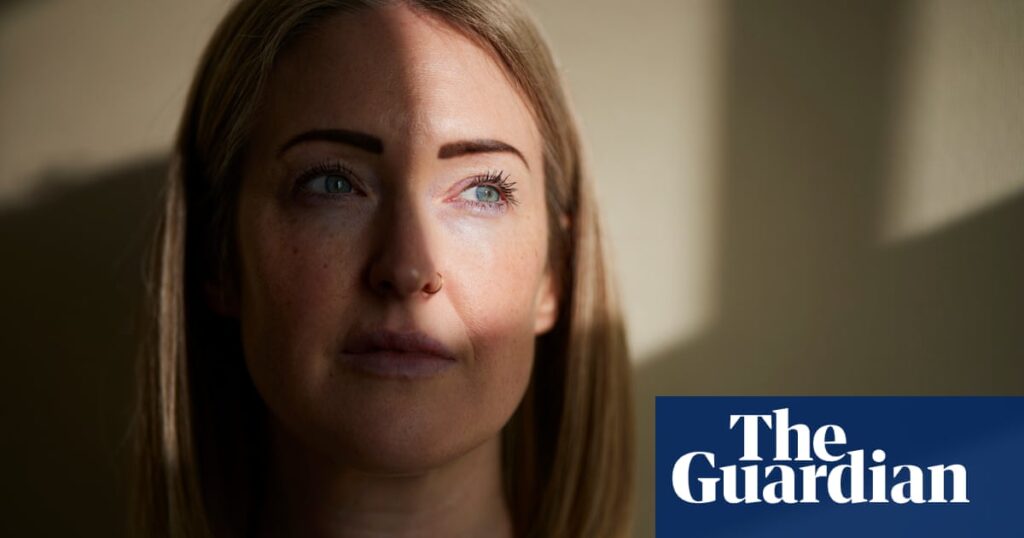The mother of Brianna Ghey has called for her murder to be a “tipping point” in how society views “the mess” of the internet, warning that a generation of anxious young people will grow up lacking resilience.
Esther Ghey said technology companies had a “moral responsibility” to restrict access to harmful online content. She supports a total ban on social media access for under-16s – a move currently under debate in certain legislatures, including Florida in the US.
She believes her daughter was vulnerable after spending so much time online, lacking contact with her real-life friends. Ghey said she also thinks Brianna would be alive if her killers had not been able to access violent content on the dark web as well as on the regular internet as they plotted her murder on 11 February last year.
Talking to the Guardian, the 37-year-old food technologist said tech bosses were also culpable when it came to the wave of anxiety and mental health problems affecting children, which she said had led to “a complete lack of resilience in young people”.
She said tech companies should reflect not just on Brianna’s murder, but also “the amount of young people that have taken their own lives” as a result of their harmful experiences online.
Esther Ghey speaking at a vigil held for Brianna one year after her murder. Photograph: Joel Goodman/The Guardian
She singled out X, formerly Twitter, for hosting pro-anorexia accounts that Brianna followed – resulting, perhaps, in her hospitalisation for an eating disorder in 2022. Ghey fears that a whole generation who have grown up watching online pornography will now struggle to form “stable relationships”.
She warned that more children would die without action from technology companies and that “more people will have mental health issues and, as a society, we will become less and less resilient and less empathic”.
Ghey said the creators of smartphone apps and social media sites were “intelligent people” who, more than parents or governments, had a duty to protect the mental health of young smartphone users.
“They’re the ones that have created this technology. They’re the ones that have got us into this mess in the first place. And I think that it’s their responsibility to get us out of this mess,” she said.
She added: “I think that they’ve got a moral responsibility to protect young people and to protect society in general, but especially our young people, because they’re the next generation of people that are going to be running the country. And, at the moment, I think it’s impacting them so much.”
Parents could not be expected to police the internet alone, said Ghey. “It takes a village to raise a child. We all need to come together and see what we can do, but I think, really, the responsibility mostly lies with the tech companies because they’ve created all this tech. Maybe they just didn’t realise how much it was going to blow up and what the impact would be. But then these people are intelligent people. So how could they not have predicted what the impact would have been in the first place?”
Asked if she wanted the likes of Apple and Google to reflect on Brianna’s death, she said: “I don’t think it’s only Brianna’s death that they should be reflecting on. What about the amount of young people that have taken their own lives? What about people who are suffering with eating disorders? What about people who are self-harming, people that have got anxiety? There is a wealth of [harmful] material for people out there that are really struggling now and I do think that smartphone use has massively impacted that.”
Brianna had a large TikTok following and dreamed of being “TikTok famous”. She had also forged close friendships with other transgender people online. But her mother believes that social media caused her more harm than good, and that if she hadn’t been so anxious she would have “found her tribe” in the offline world.
In-person contact was important, particularly for young, vulnerable people, she said.
skip past newsletter promotion
Get the day’s headlines and highlights emailed direct to you every morning
Privacy Notice: Newsletters may contain info about charities, online ads, and content funded by outside parties. For more information see our Privacy Policy. We use Google reCaptcha to protect our website and the Google Privacy Policy and Terms of Service apply.
after newsletter promotion
“From face-to-face contact, you get that empathy and you get that understanding and you realise that other people are human as well. Whereas, when you’re behind the keyboard, people feel like they can say whatever they want when they’re behind the screen. I think that, for children, we need to make sure that they have real social interaction with people.”
She likened social media to a drug treatment, in which regulators have to weigh up whether the benefits outweigh the side effects. “I think that the cons definitely do outweigh the pros of social media for young people,” she said.
Ghey is campaigning for the introduction of “children’s phones” with no social media apps, which are linked to their parents’ devices. The parents would be alerted any time the child downloaded anything, or if they searched for alarming content.
Scarlett Jenkinson, who murdered Brianna with Eddie Ratcliffe, had downloaded an app to access the dark web when she was just 14, and told the jury she enjoyed watching real-life videos of torture and death.
 Police release footage of teenagers being arrested for murder of Brianna Ghey – video report
Police release footage of teenagers being arrested for murder of Brianna Ghey – video report
Both defendants, who were just 15 when they plotted and carried out the murder in Culcheth Linear Park, Warrington, made multiple internet searches for killing methods.
“I think that, if there were the technology where certain words were flagged up, then potentially she would still be with us. It would have made things a lot harder for Scarlett and Eddie,” said Ghey.

